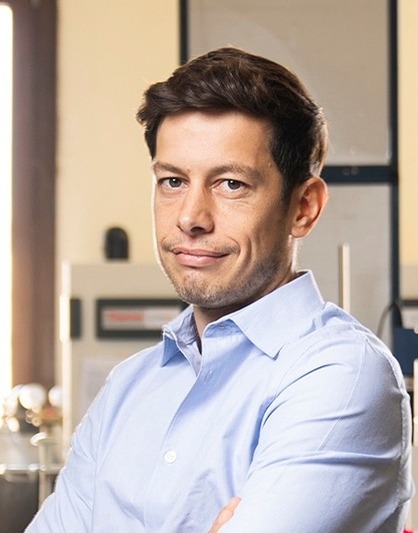
Additional Links
Andreas Kakarougkas
- Position: Assistant Professor
- Department: Nancy Hopkins Department of Biology
- Email: [email protected]
Andreas Kakarougkas is an assistant professor of cell and molecular biology and director of the biotechnology graduate program at The American University in Cairo (AUC). He is passionate about teaching and has delivered courses at all levels (introductory-graduate). Kakarougkas is particularly interested in applying the latest pedagogical approaches in order to enrich the learning experience of his students. He employs active learning approaches such as problem-based learning and blended learning to make his classes highly interactive. Active learning, which emphasizes student engagement and participation, is a key area of research in higher education, with various pedagogical approaches being explored to maximize its effectiveness in diverse learning environments. Kakarougkas conducts classroom research in order to assess the effectiveness of these pedagogical approaches.
In addition, Kakarougkas is interested in how our bodies respond to carcinogens in our environment. In particular, he is interested in how damage to our DNA can lead to cancer. He has received specialist training in all aspects of cell and molecular biology, toxicology and DNA repair analysis. His research in the DNA damage responses field has been published in high-impact peer-reviewed journals. Kakarougkas is currently working on the health implications of exposure to metallic nanoparticles found in air pollution. His research is particularly pertinent to Egypt due to the large number of people exposed to airborne pollutants.
- Active and Blended learning in Biology
- DNA Double Strand Break Repair
- Impact of airborne pollutants on genome stability
- Personalized Cancer Treatment
- 2023 RCC Faculty Pitch Competition First Place
- 2023 School of Sciences and Engineering Excellence in Teaching Award
- 2012 MRC Centenary Award, awarded to the very best young researchers (£35,000 funding)
- 2012 Association of Radiation Research Young Investigator Award, UK
- 2010 Association of Radiation Research Young Investigator Award, UK
- 2012: PhD in Biochemistry, University of Sussex, Brighton, East Sussex, United Kingdom
- 2007: MSc in Radiation Biology, University College London, United Kingdom
- 2006: BSc in Biomedical Sciences, University of Brighton, United Kingdom